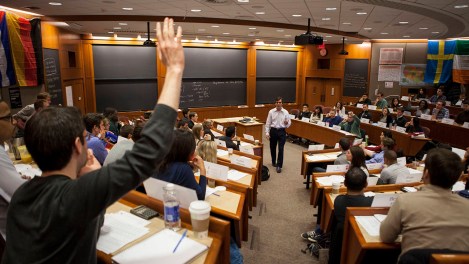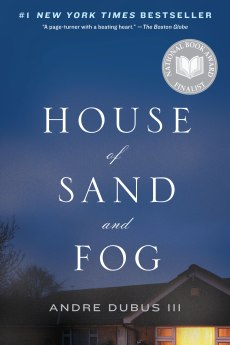 What They Teach You At Harvard Business School: My Two Years Inside The Cauldron Of Capitalism by Philip Delves Broughton
What They Teach You At Harvard Business School: My Two Years Inside The Cauldron Of Capitalism by Philip Delves Broughton
My rating: 4 of 5 stars
What They Teach You at Harvard Business School: My Two Years Inside the Cauldron of Capitalism (2008) by Philip Delves Broughton was originally published without a Postscript and under the American title Ahead of the Curve: Two Years at Harvard Business School (not to be mistaken for Brian Kenny’s 2016 book for baseball lovers called Ahead of the Curve). The Postscript for Philip’s book was added in 2009, after the economic catastrophe, and the title was changed in the United Kingdom and elsewhere outside of the United States.

Harvard Business School (HBS) was established in 1908 with its Roman motto “Veritas,” Latin for “Truth” and represented by a young virgin in white.

HBS has, however, had its problems with the truth and was criticized in the Bloomberg article called “A Harsh View of Harvard Business School” (July 11, 2017) written by Barry Ritholtz, who cites Duff McDonald, author of The Golden Passport: Harvard Business School, the Limits of Capitalism, and the Moral Failure of the MBA Elite (2017), who explained: “One of the most vaunted institutions in America—Harvard Business School—is not only a ‘failure’ but positively ‘dangerous.’” Philip also has something important and damning to say about Harvard Business School (HBS) and he says it defiantly in the Postscript of his book:
Philip also has something important and damning to say about Harvard Business School (HBS) and he says it defiantly in the Postscript of his book:
“A financial era ended in the summer of 2008, one built on the availability of credit and the ability of an ingenious elite to exploit it. This elite consisted of investment banks, private equity firms and hedge funds…
“Throughout these weeks and months of crisis, the Harvard Business School’s alumni were exactly where the school wanted them to be: in positions of leadership. They were the President of the United States [George W. Bush, class of 1975], Treasury Secretary [Henry Paulson, class of 1970], head of Securities and Exchange Commission [Charles Christopher Cox, class of 1977], CEOs of banks and senior partners in investment firms.
“Which begs the question: what exactly had Harvard been teaching them?
“I realize now that they should have been unsettling to everyone: the narrow thinking, the greed, the disinterest in politics, the contempt for the non-business world and, most of all, the complete unwillingness to accept responsibility for its mistakes” (p 284-285).

He does, however, provide clues to why he is so critical later on in the Postscript:
“I felt two things,” Philip explains. “The first saw how privileged we were to see the world as Harvard MBAs. The brand was stronger than I had ever imagined. The second was how weird this perspective was…
“Instead of being part of society, the MBA überclass seemed to exist apart from the rest of the world, with its own set of standards. You needed to yank hard to get its attention” (p 120).
Philip is not alone when he calls HBS a place disconnected from the rest of the world, one that is pure and good and honest and forthright:
“A friend who had visited Baghdad’s Green Zone said that Harvard Business School felt eerily familiar. Whatever hell befell the rest of Iraq, the Green Zone was made luxurious with palm trees, swimming pools, and functioning electricity. Its occupants cocooned themselves from the unfolding horror so that they could focus on the broader mission of rebuilding a country. So, too, HBS smacks of an ivory tower, cut off from the world outside” (p 50).
One commenter named “Adam,” however, wrote about Philip’s book at Goodreads.com on September 15, 2008:
“If I didn’t work at HBS I wouldn’t have touched this book with a 10 foot pole. But I do work at HBS and I know many of the players mentioned in this book and I was there for the stir this book created when it was released. Needless to say the institution was less than thrilled…
“Also involved in the clash of world views is the idea of ‘selling out’, sacrificing your personal life to make huge money. This is probably the true crux of the book… This theme came up again and again and the author clearly fell in the minority as he struggled to find a path that would allow him to use the business education he was getting while also being a visible father and husband.”
Recruiters also share Philip’s assessment of the low quality produced by Harvard and HBS:
“A Wall Street Journal poll had just come out ranking Harvard number thirteen. Numbers one and two were the business schools at the University of Michigan and Carnegie Mellon, respectively. Harvard’s low rank was in large part due to the negative opinions of recruiters, who had told the newspaper that HBS MBAs were ‘arrogant,’ with a ‘sense of entitlement’ and ‘ego problems’” (p 85).

The negative opinion of Harvard students, MBAs or otherwise, is no surprise to anyone who has ever met someone who graduated from Harvard—the real pretentious type who fail to listen closely to the conversation and ends up saying she’s never heard of the University of Southern California (Yes, that happened).
A graduate of Harvard University and a nonfiction professor in the Writing Program at Columbia University, this same woman wore fishnet stockings and a tight miniskirt the night New York Times Bestselling novelist Andre Dubus III, author of House of Sand and Fog (1999), came to visit the hotel (the young woman later became a columnist for the New York Times Sunday Book Review. Coincidence?).
She’s also the daughter of a respected economist who teaches at the University of California, San Francisco (the irony is too rich sometimes), and the father is also a Harvard alumni, having received his Ph.D. in economics from Harvard University under Kenneth Arrow; the father also has a sister who taught at Harvard University in 2002. As they say, “Keep it in the family.”

Nepotism and the lack of a moral compass run wild among the Harvard alumni. Empathy, to say the least, is a byword for these Harvard pseudo-intellectuals who attend the university more for the “brand” and for the “networking” the university offers than for a real, honest education.
“Harvard was a brand as much as a school,” writes Philip, “and by attending, we were associating ourselves with one of the greatest brands in business. We were now part of an elite, and we should get used to it. I struggled with this idea. It seemed so arrogant on the part of the school, and somehow demeaning to those of us who had just arrived. Regardless of who we were when we arrived, or what we might learn or become over the next two years, simply by being accepted by HBS, we had entered an überclass. It was HBS, not anything that came before it, that conferred the ‘winner’ tag on all of us…
“They would even help our children get into HBS, if needed. It was a brutal acknowledgment of the legacy admissions system, whereby the children of alumni are preferred, and it immediately set me thinking: How many in this room were here simply because someone had pulled strings?” (p 20)
As you read you will begin to see a pattern of corrupted ideology forming, and it isn’t the good kind. It’s the kind that believes in the saying, “the second mouse gets the cheese,” meaning: have others work hard while one person reaps the rewards and fruits of labor (i.e., steal from those who do honest work). The kind of ideology that says, “Ask for forgiveness. Don’t ask for permission.”
One day at Harvard Business School (which seems to be taught mostly be immigrants from countries like Australia, India, Turkey, etc.), Philip encounters the following scene:
“During coffee breaks from Crimson Greetings, I had noticed how many of the class seemed to know one another or at least know people in common. The networks of certain universities and companies ran very deep. For those like me, who knew no one, it was a question of drifting through the crowds” (p 24).

Philip has more to say on the “networks” (i.e., favoritism through personal connections and not through merit or hard work) at HBS:
“I also met up with Vera, a Chinese woman who had emigrated with her husband to Silicon Valley and had worked for a large technology firm… ‘I hate all this stuff about the network and relationships and being able to bullshit in front of other people,’ she said. ‘That’s what we’re being trained to do. That’s not what Chinese immigrants think business is. We think it’s about good ideas and hard work’” (p 116-117).
There’s more:
“For some companies, especially the top-tier banks, private equity firms, and hedge funds, if you did not spend the summer with them you had no chance of working for them later” (p 132).
And more:
“His story was one of seizing opportunity, gathering resources, and deploying them. He knew the right people to finance him and help create and sell the game… We were taught to organize our thinking according to POCD, people, opportunity, context, deal” (p 177).

It is Einstein and Gandhi, in the end, who have the most to say about education and learning:
“At the end of our course, [Paul A.] Gompers presented us with two quotations, the first from Einstein: ‘One should guard against preaching to young people success in the customary form as the main aim in life. The most important motive for work in school and in life is pleasure in work, pleasure in its result, and the knowledge of the value to the rest of the community.’ The second was from Gandhi: ‘Live as if you were to die tomorrow. Learn as if you were to live forever’” (p 177).
Albert Einstein and Mahatma Gandhi.
Yes, they knew a thing or two, and neither one graduated from Harvard.































Pingback: Working with Emotional Intelligence (1998) by Daniel Goleman & Systems Theory - CG FEWSTON